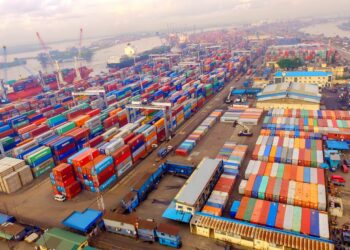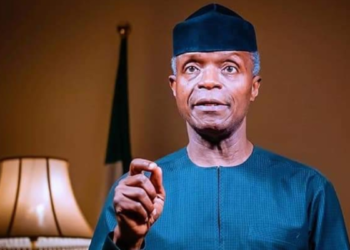|
The federal government and members of the organized private sector were in frenzy yesterday in a bid to eke out solutions to oil price plunge, which is seen to have untoward consequences for the Nigerian economy including declining revenue, slower reserve, weaker naira, and inflation. The price of Brent crude fell from $45.47 last Friday 6, to $34.00 yesterday, dropping more than 30 percent and causing jitters among prominent private sector figures and the federal government, as dire consequences on the economy lie ahead. To forestall the impending negative fallouts, President Muhammadu Buhari yesterday set up a committee with a mandate to make a quick assessment of the impact of the situation on the economy. The committee is saddled with the responsibility to urgently evaluate the effect of oil prices on the economy. This followed the President’s meeting with the Ministers of Finance, Budget and National Planning, Zainab Ahmed; and Petroleum Resources, Timipre Sylva, as well as the Group Managing Director (GMD) of the Nigerian National Petroleum Corporation (NNPC), Mele Kyari. Sequel to the meeting with the president, the Minister of Finance briefed journalists about the likelihood of reviewing the budget benchmark, as well as the budget itself downward. Reactions of some members of the organized private sector also revealed that the country should be bracing itself for stiff adjustments. In his reaction the Managing Director of Danvic Petroleum International, Dr. Afe Mayowa said that Nigeria should be guided by the obvious fact that crude oil is a global commodity cannot be controlled by any nation. Mayowa who is also the president of Oil and Gas Petroleum Trainers Association of Nigeria, OGTAN, said that the country’s huge revenue from oil, of course, presented net wealth and thus provided the opportunity for increased expenditure and investment; however, it also complicated macroeconomic management and made the economy highly oil-dependent. He said that In spite of the huge revenue from oil, the economy still grapples within many problems including high and rising unemployment rate, declining manufacturing production, the high and rising level of poverty and poor infrastructural development. Thus, the dismal growth of the Nigerian economy in the face of huge revenue from oil has rekindled interest in the importance of oil in the growth and development process in Nigeria. To him, Nigeria should look beyond crude oil export and consider adding value from the product. “There is an urgent need to fix the local refineries so that we refine and produce the products that we need to boost local production. If we refine locally, we get gas to power the industries, generate power to boost economic activities and create jobs. Even if we increase production above OPEC quota it will still not make any difference because we are not determining the price and considering our budget benchmark you can see there is a major problem here”, he said. Aside from agriculture, he said that Nigerian Tourism industry has a more prominent potential than whatever other single industry, because of its multiplier impacts to bolster financial development and occupation creation. He further said that in order to accrue revenue from the non-oil sector, the government needs to tackle electricity issues throughout the country. This will help attract global investments for massive industrialization, which will subsequently increase internally generated revenue. Similarly, the government should revamp and carry out major reforms in the education and health care systems so that tertiary institutions will churn out graduates who will be employers of labor instead of going abroad looking for better opportunities. On their part, the Major Oil Marketers Association of Nigeria (MOMAN), urged the federal government to remove subsidy on petroleum products on the strength of the dwindling crude oil prices caused by the deadly Coronavirus. Chairman of MOMAN, Tunji Oyebanji, who gave the advice also said the N450billion subsidy in the 2020 budget would not add value to the nation’s downstream sector and the lives of Nigerians. He argued that removing fuel subsidy at the period of a drop in prices would eliminate waste, address the nagging issue of the low margin of marketers as well as set the country on the path of determining appropriate pricing for the product in the country. He also advocated the need for the restructuring of the nation’s downstream oil industry in order to set it on the path to progress. According to him: ’The elimination of oil theft and leakages in the system, the optimization of the supply chain, the introduction of alternative energies and the regular and consistent maintenance of the distribution infrastructure are all necessary aspects of this downstream reform which passage of the Petroleum Industry Bill will provide an opportunity for the country to resolve once and for all’’ Oyebanji, who said his group recently attended a working session with the Group Managing Director of the Nigerian National Petroleum Corporation(NNPC), Mallam Mele Kyari on the challenges in the nation’s downstream petroleum industry, expressed that MOMAN will not condone fuel theft, fuel adulteration or illegal refining of petroleum products by unlicensed entities. He added that MOMAN would collaborate with its business partners such as dealers and transporters to support the federal government and the Nigerian National Petroleum Corporation(NNPC) to eliminate these malpractices. He expressed MOMAN’s support for the federal government’s drive for the full exploitation of the country’s gas reserves including deepening the use of Liquefied Petroleum Gas (LPG) and Compressed Natural Gas(CNG)in the country. He disclosed that his group is prepared to invest in the safe installation of Liquefied Petroleum Gas (LPG) facilities in its stations across the country, adding that the development will eliminate the unsafe practice of dispensing cooking gas through unlicensed roadside vendors. ‘’With respect to Compressed Natural Gas(CNG), MOMAN encourages immediate engagements with the private sector to identify policy measures that will make deployment of CNG at retail outlets a reality for the country in the shortest possible time. MOMAN will collaborate with government and other stakeholders in implementing any such initiative’’ According to Senior Research Analyst at FXTM, Lukman Otunuga the staggering depreciation in oil prices could not have come at a more disruptive and critical time for the Nigerian economy. “At this point in time it is difficult to pinpoint where the floor is on Oil which has depreciated over 43 percent since the start of 2020, and this is bad news for many emerging market energy producers including Nigeria. “The country’s export earnings and government revenues will take a direct hit from the steep decline in oil prices. This will hit foreign exchange earnings, the Central Bank of Nigeria’s ability to defend the naira, and may even result in rising inflationary pressures” he stated. Raising questions over Nigeria’s ability to effectively implement the 2020 budget which has set the benchmark for Oil at $57 and an Oil revenue goal of N2.64 trillion, Otunuga noted that if severely depressed oil prices will hit export earnings, reduce government revenues, weakened the naira and stoke inflationary pressures adding that “Nigeria’s economy will be under threat in 2020.” On his part, Head of Research at United Capital, Wale Olusi noted that the oil price crash will mean a fall in the revenue for the country and the country may need to borrow more than the initial plan to be able to execute the budget. According to him, the crash in oil price “means that oil revenue will drop by 40 percent and it means we won’t be able to properly execute a budget of N10 trillion except we increase borrowing beyond the initial plan because the extra 40 percent decline has to come from somewhere. If we don’t borrow, the budget automatically will not be able to be executed 100 percent which simply means that some of the capital projects will go unimplemented. “Most of the time recurrent expenditure will be implemented because people have to get paid their salaries and debt servicing obligations have to be met. Most of the time it is capital projects that get abandoned.” This view was also shared by the Managing Director and Chief Executive of Cowry Assets Management, Johnson Chukwu who noted that the prognosis is not good for the country. He said the revenue will be severely affected to the extent that “it will be difficult for the government to meet recurrent expenditure talk less of capital expenditure” if oil prices remain at the low level. He, however, hoped that what the global oil price situation is a short term situation as he said “What we are witnessing is a panic drop in crude prices. I believe it will correct itself. It may not go back to $58 but I don’t think it will remain at the current level for a long time. “Should it remain at the current level, our reserves will be depleted sooner than expected, the exchange rate will be affected and we may see a devaluation of the currency and a sharp increase in the inflation rate.” Managing Director of Afrinvest Securities Limited, Ayodeji Ebo who noted that with oil price now below the $50 mark, the trade deficit in the first quarter in 2020 may be higher than what was recorded in the last quarter of last year. He noted that if there is a continued decline in the price of crude the reserves would further deplete making it unsustainable for the country to continue to defend its currency. Olusi while noting that oil proceeds account for about 90 percent of what goes into the reserves, said “if there is a pressure coming from oil, it means the accretion to the external reserves will be very very slow. “If the CBN is dipping hand faster into the reserves more than oil is adding into it, it is likely to fall below the psychological level of $30 billion that the CBN has been talking about recently. If it hits that level, then there might be a problem with devaluation.”
|
|



